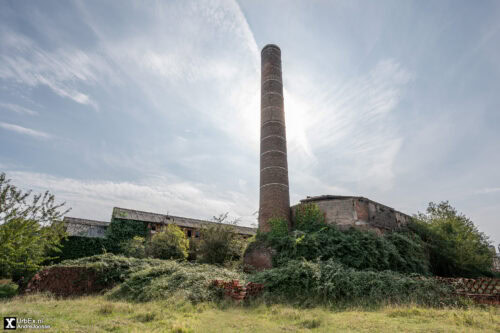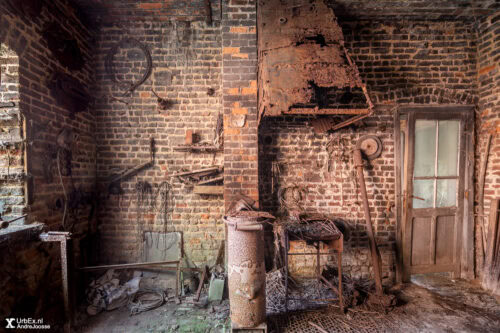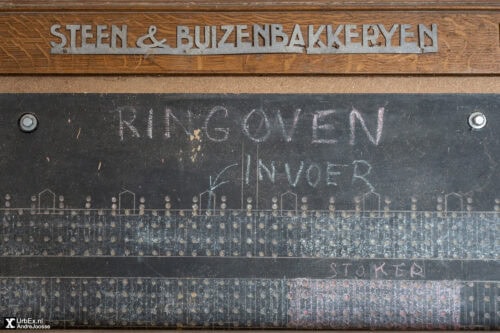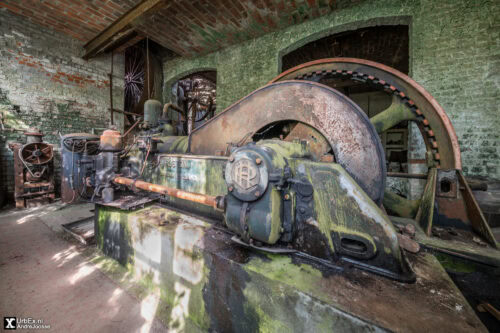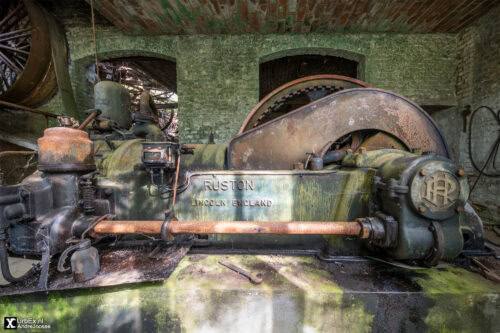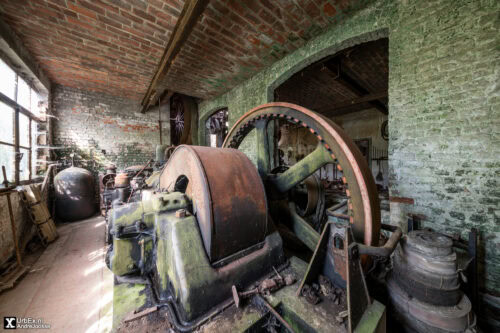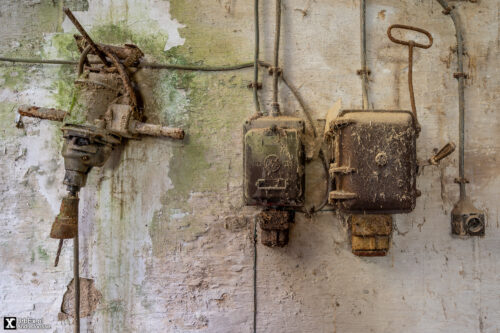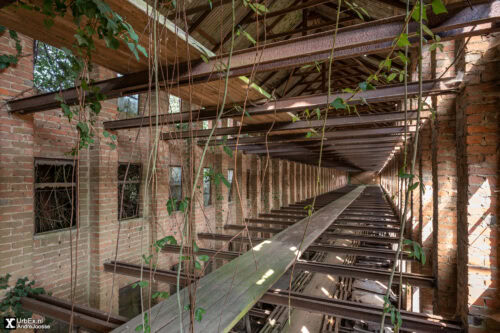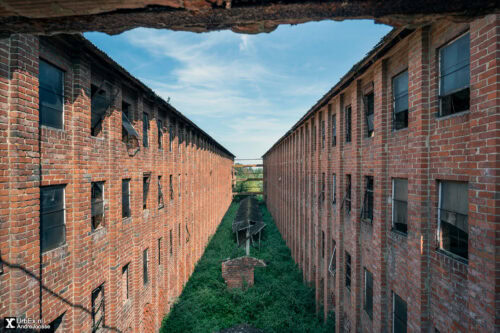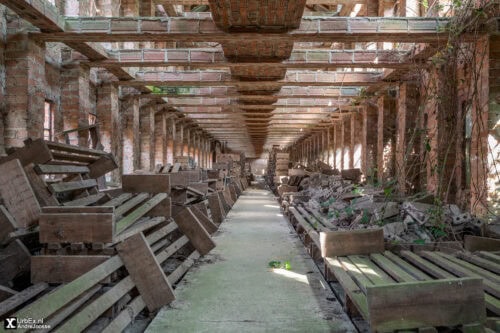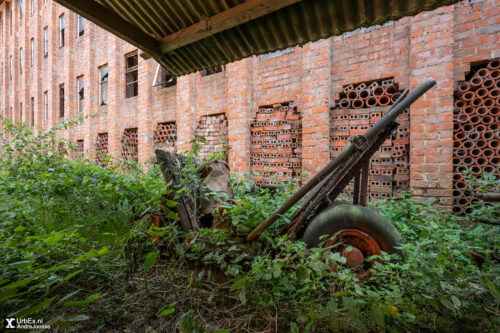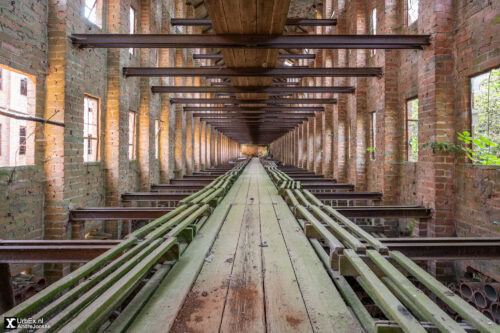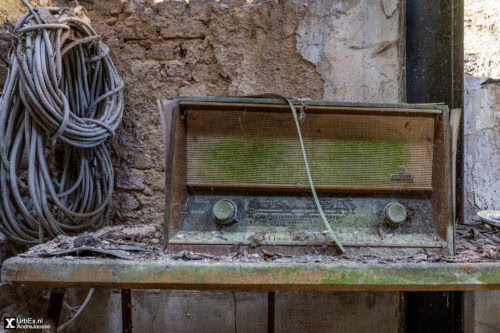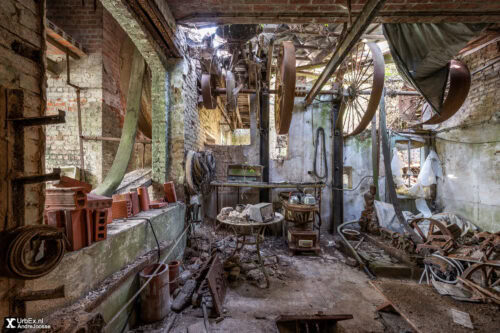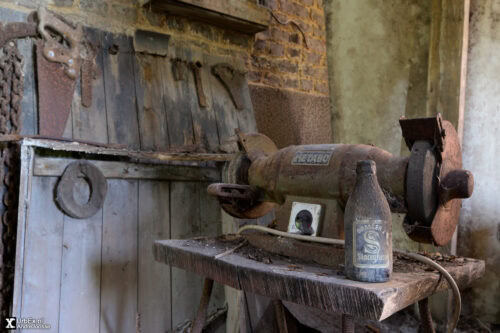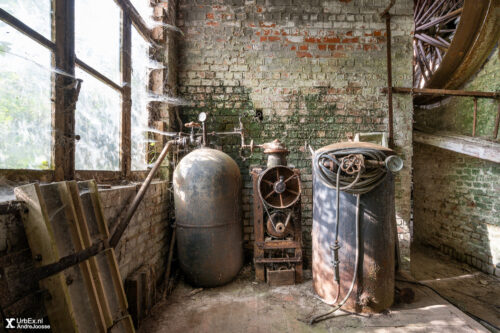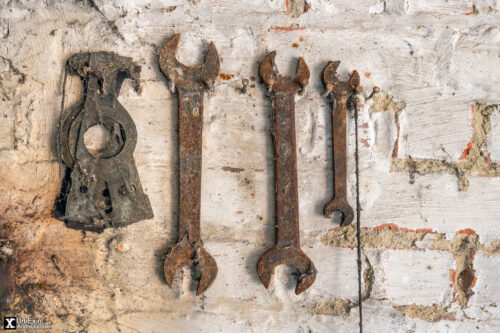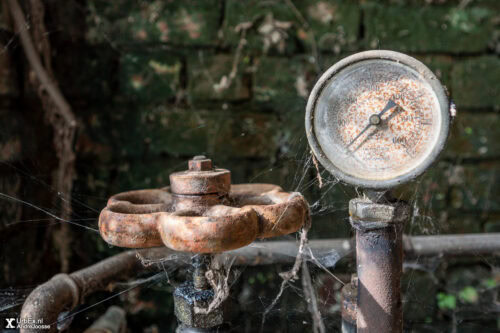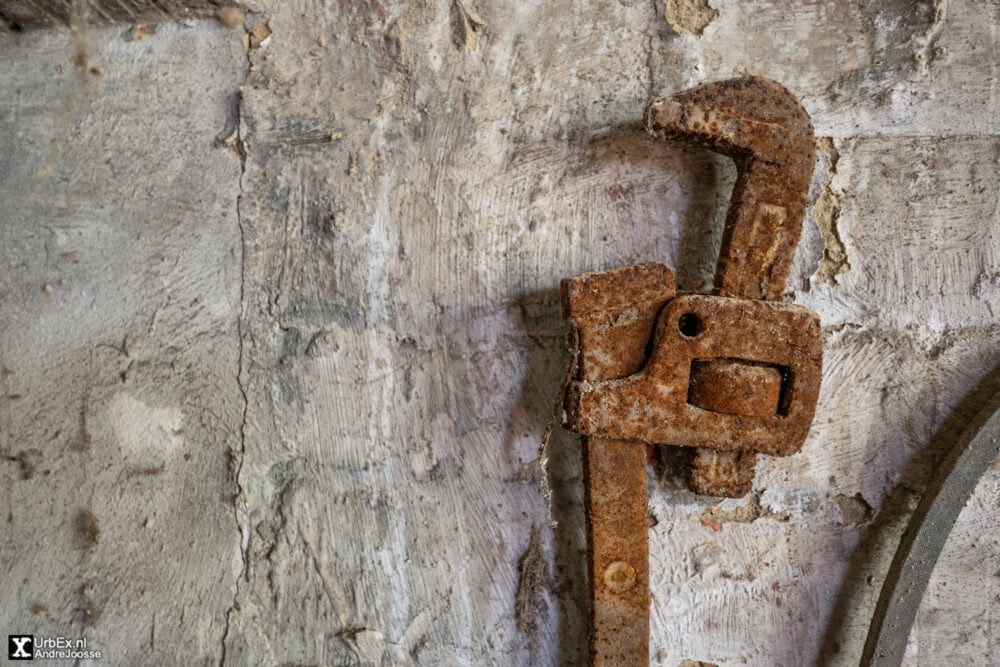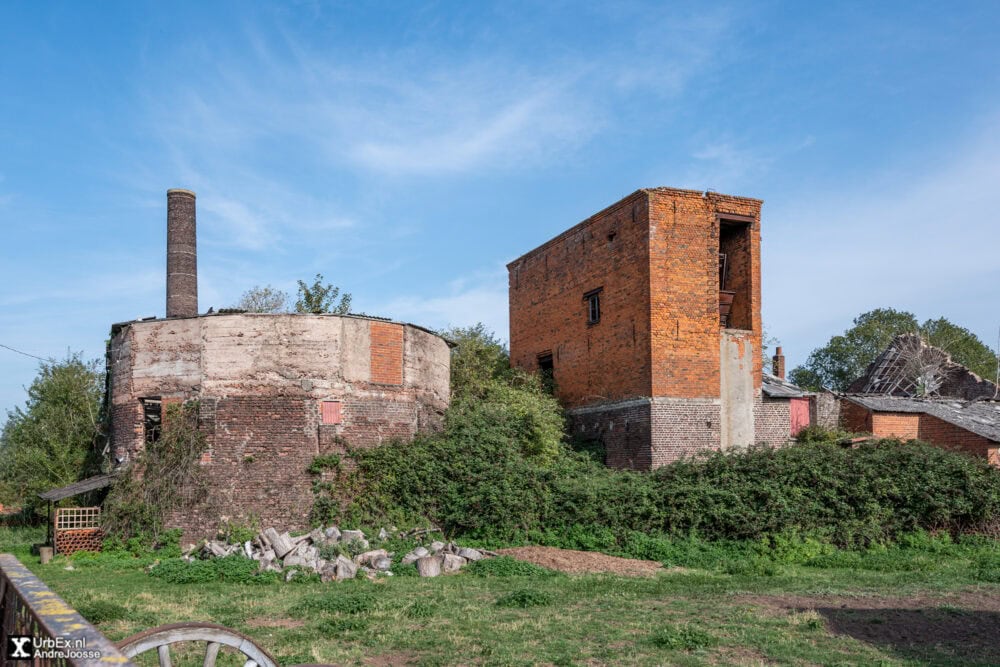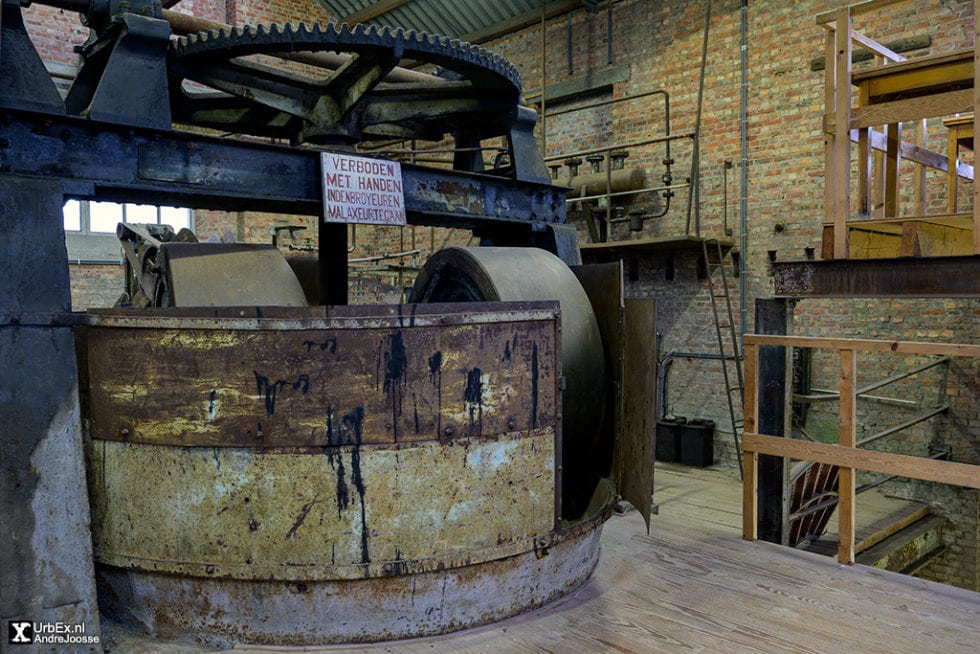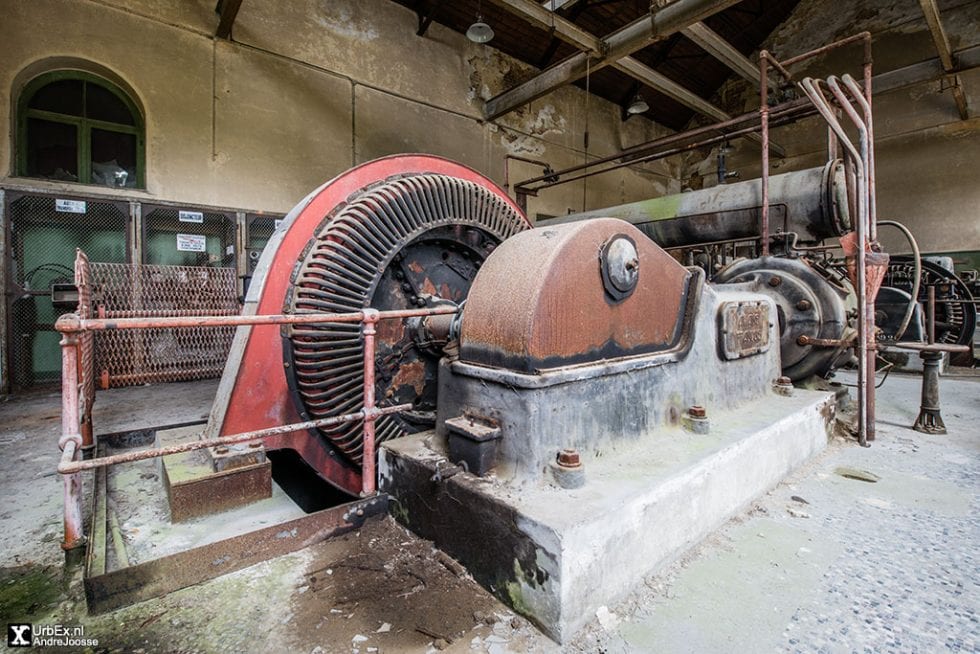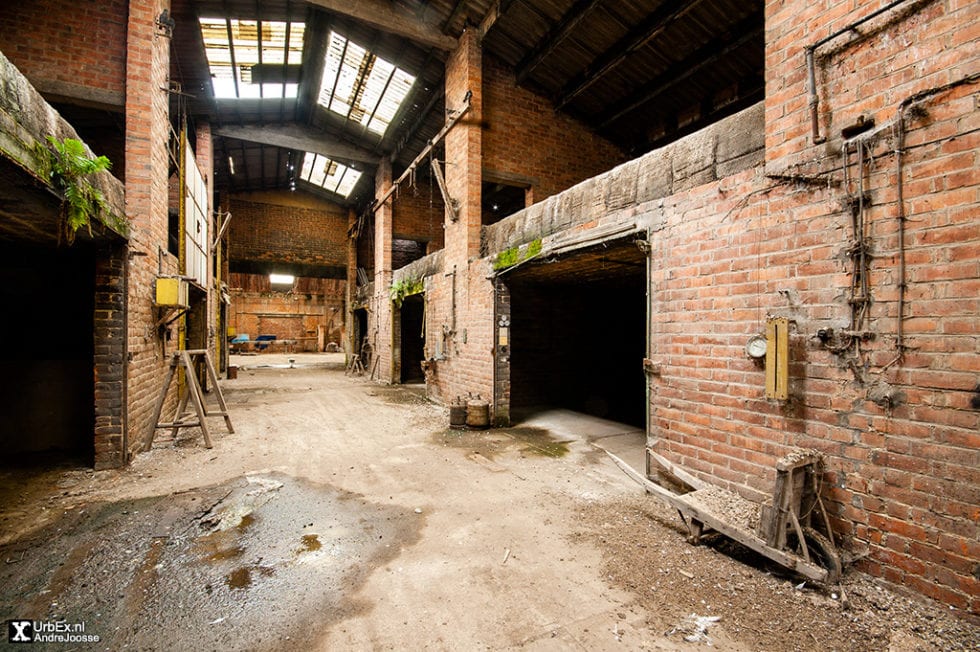Buizen- en Steenbakkerij Dumoulin
After the First World War, Belgian entrepreneur Jos Dumoulin founded Buizen- en Steenbakkerij Dumoulin. This factory made ceramic drainage pipes and hollow stones. This historic site, which closed in 1975, now stands abandoned and decaying.
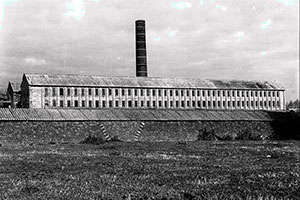
Amidst the First World War, the region found itself on the front lines. Post-war, urgent reconstruction efforts were necessary. Jos Dumoulin stepped up by constructing field ovens to swiftly manufacture the much-needed drainage pipes for the bomb-damaged land. But it was the Menu family established the region’s first modern brick factory, complete with a ring kiln, partially situated atop a former German bunker. However, in 1926, the Menu factory encountered difficulties, prompting Jos Dumoulin to step in and assume control. His intervention played a crucial role in maintaining brick production during that challenging period.
Drainage pipes
Dumoulin specialized in ceramic drainage pipes and hollow stones. The center of the site is the Hoffmann kiln. This kiln has a main fire passage with many small rooms. Each room holds bricks. A fire wagon moves through the passage, firing each room until the bricks harden.
Additionally, the complex includes drying sheds, a blacksmith shop, an engine room equipped with a Ruston diesel engine and a gasifier, and narrow gauge railways on-site.
PVC
In the 1960s-1970s, new tunnel ovens and PVC pipes became popular. The factory couldn’t compete and closed around 1975. Most equipment and machines remain preserved. The company went bankrupt in 1978, and the clay pits were partly filled with waste.
Efforts to save the site have failed. In 2000, it was protected as a monument, but this protection was removed in 2008. Despite its rich history and the efforts to preserve it, Buizen- en Steenbakkerij Dumoulin remains in a state of decay. The site, once bustling with activity, is now a silent witness to the past, slowly crumbling away. I visited the site in 2020.
